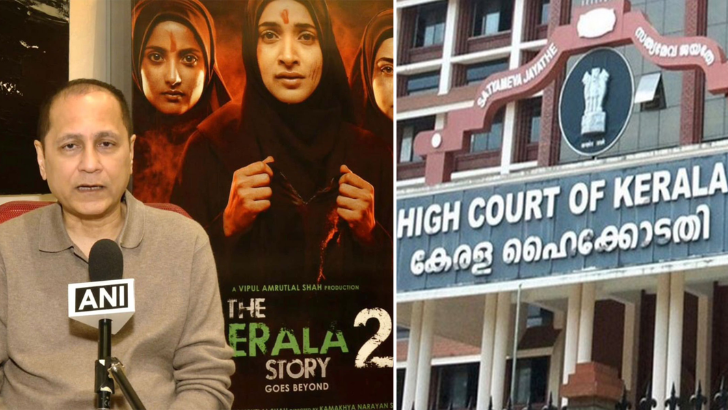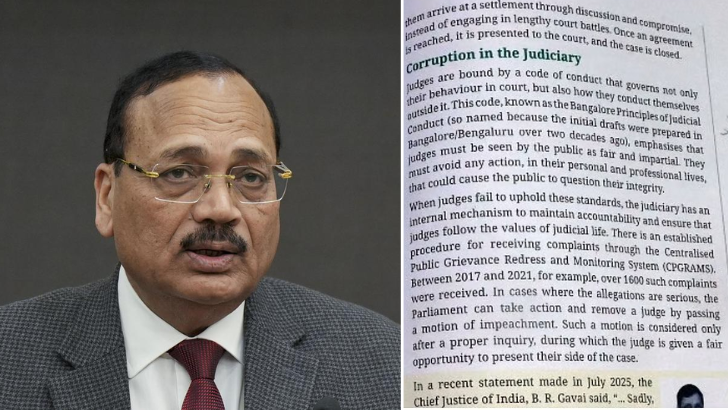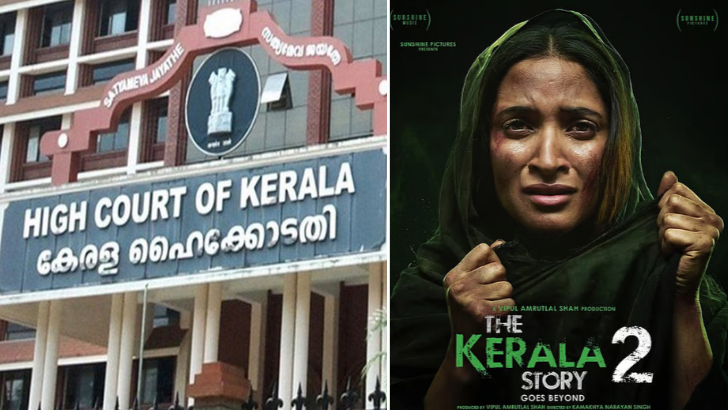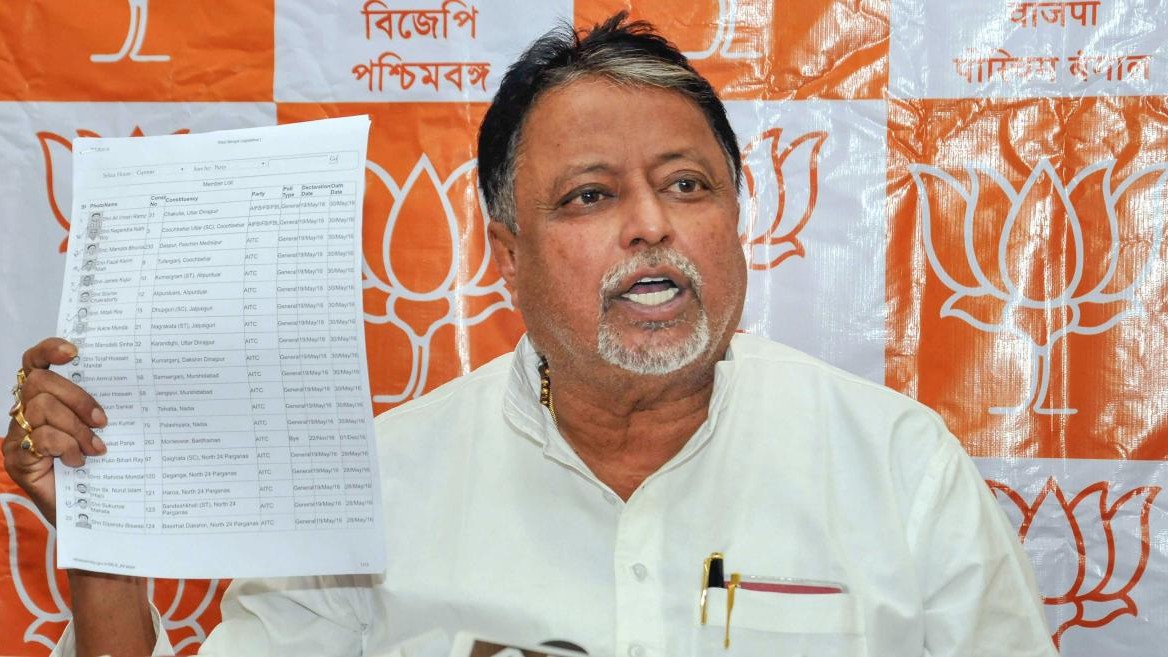SC grants judiciary access to visually impaired, strikes down bias
In a landmark judgement, the Supreme Court on Monday held that visually impaired persons cannot be denied opportunity of employment in judicial services, as it struck down provisions of the Madhya Pradesh Judicial Service Rules that excluded them.
PTI
-
The bench also said the commitment to ensuring equal opportunity necessitated a structured and inclusive approach
New Delhi, 3 MARCH
In a landmark judgement, the Supreme Court on Monday held
that visually impaired persons cannot be denied opportunity of employment in
judicial services, as it struck down provisions of the Madhya Pradesh Judicial
Service Rules that excluded them.
The top court said, "It is high time that we view the
right against disability-based discrimination, as recognised in the RPwD Act
(Rights of Persons with Disabilities Act) 2016, of the same stature as a
fundamental right, thereby ensuring that no candidate is denied consideration
solely on account of their disability."
A bench of justices J B Pardiwala and R Mahadevan delivered
the significant judgement on petitions, including a suo motu case, over
non-grant of quota to visually impaired and low vision candidates in judicial
services in a few states.
In the 122-page judgement, Justice Mahadevan held,
"Visually impaired candidates cannot be said to be 'not suitable' for
judicial service and they are eligible to participate in selection for posts in
judicial service."
The verdict said the amendment made in Rule 6A of the Madhya
Pradesh Judicial Service (Recruitment and Conditions of Service) Rules, 1994,
"falls foul of the Constitution, and is hence, struck down to the extent
that it does not include visually impaired persons who are educationally
qualified for the post to apply".
It also said that the provision to Rule 7 relating to
additional requirements violated the equality doctrine and the principle of
reasonable accommodation, and struck down its application to differently-abled
persons who have requisite qualifications for applying to judicial posts.
"The overall analysis would demonstrate that a
rights-based approach necessitates that PwD (persons with disabilities) must
not face any discrimination in their pursuit of judicial service opportunities,
and instead, there must be affirmative action on behalf of the state to provide
an inclusive framework," the bench said.
It referred to the principle of reasonable accommodation, as
enshrined in international conventions, established jurisprudence, and the RPwD
Act and said accommodations be provided to them as a prerequisite to assess
their eligibility.
"Any indirect discrimination that results in the
exclusion of PwDs, whether through rigid cut-offs or procedural barriers, must
be interfered with in order to uphold substantive equality," it said.
The bench also said the commitment to ensuring equal
opportunity necessitated a structured and inclusive approach, where merit is
evaluated with due regard to the reasonable accommodations required.
It said relaxation can be resorted to in assessing the
suitability of candidates when enough PwD are not available after selection in
their respective category.
The bench also referred to the principles enunciated in the
Indra Sawhney (Mandal) judgement and said a separate cut-off be maintained and
selection be made accordingly for visually-impaired candidates.
"For the purpose of rights and entitlements of persons
with disabilities, particularly in employment, and more specifically in respect
of the issues covered in this judgment, there can be no distinction between
persons with disabilities and persons with benchmark disabilities," it
said.
Rule 7 is struck down to the extent of prescribing
additional requirements of either a three-year practice period or securing an
aggregate score of 70 per cent in the first attempt, it said.
The bench directed the authorities to proceed with the
selection process for appointment of judicial officers in the light of the
decision and complete the same, as expeditiously as possible, preferably,
within a period of three months.
Besides the validity of certain rules, the bench was
deciding the key issue of whether visually impaired candidates can be said to
be 'not suitable' for judicial service.
The other major question was whether a separate cut-off is
to be maintained and selection conducted accordingly for the visually impaired
candidates.
Referring to the constitutional framework, the bench said,
"If there is one principle that forms part of the bedrock of the
Constitution, it is 'inclusivity' on which also rests the doctrine of equality,
which, apart from being one of the ideals set out in the preamble to our
Constitution, has been specifically stated in Articles 14, 15 and 16 under the
Fundamental Rights chapter, and forms part of the basic structure of our
Constitution."
It also referred to previous judgements and said,
"These rulings underscore the principle that reasonable accommodation is
not a discretionary measure, but a fundamental right integral to achieving
substantive equality for PwD, forming part of the right to dignity as
guaranteed under Article 21 of the Constitution."
It is also worthy to mention that the 73rd and 74th
Amendments to the Constitution made it a constitutional obligation for the
state to make provisions for safeguarding the interest of the weaker sections
of the society, including "handicapped and mentally retarded", the
bench noted.
The court also permitted relaxation in cut-off marks for PwD
candidates when sufficient candidates are not available in their category.
It directed that a separate cut-off and merit list should be
maintained for the visually impaired candidates at every stage of the selection
process to ensure fair representation.
Leave a Reply
Your email address will not be published. Required fields are marked *








.jpeg)











